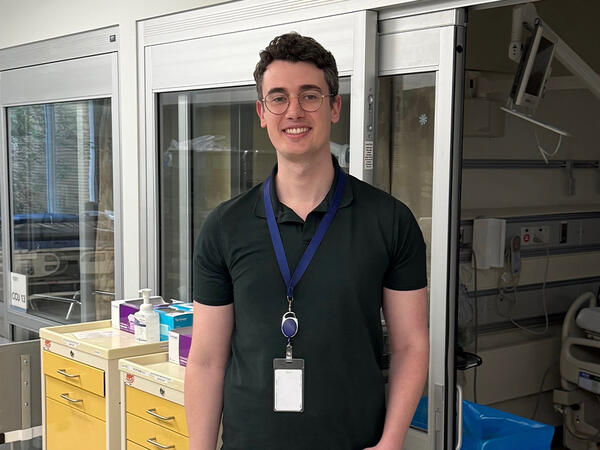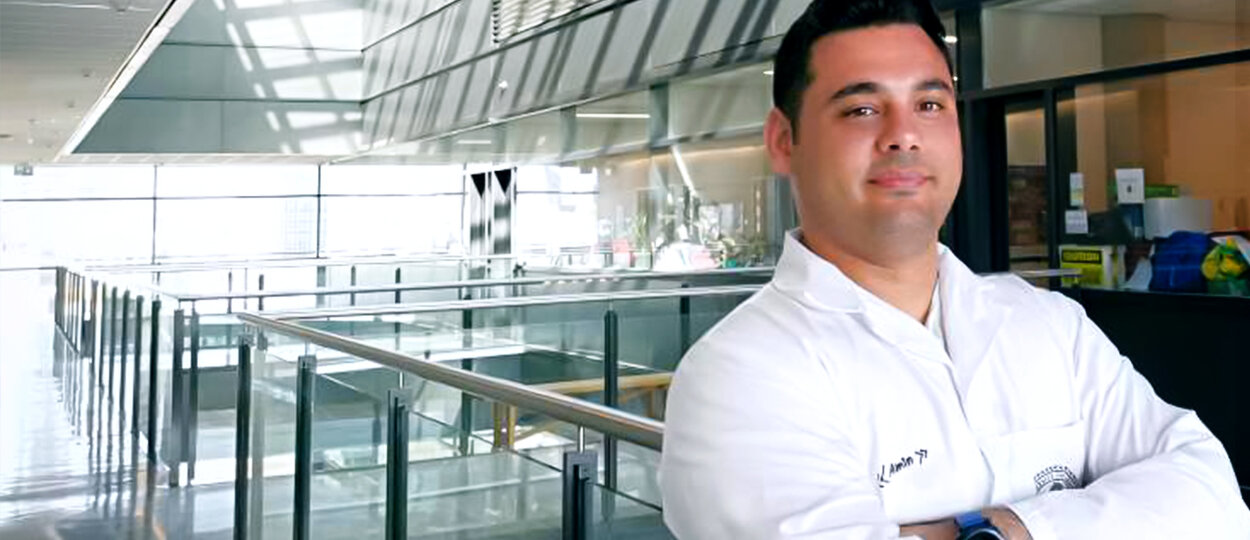What is your academic background and how does it complement pharmaceutical sciences research?
I was trained in polymer science and engineering and earned my Ph.D. in Chemical Engineering from Chonbuk National University in South Korea under the supervision of Dr. Florian J Stadler.
Topically, my research focuses on exploring strategies that apply advanced polymeric materials and biomedical devices for treating various diseases ranging from cancer to diabetes treatment. I am currently working as a postdoctoral researcher under the supervision of Dr. Shirley Wu in Advanced Pharmaceutics and Drug Delivery Laboratory, Leslie L. Dan Faculty of Pharmacy. I am leading the “Diabetes” research subgroup, one of the 4 subgroups of Wu lab, which focuses on developing smart drug delivery systems for diabetes treatment. My background in polymer science helped me a lot to design and develop this technology in the lab. In addition, with the kind support of Dr. Wu, I am also giving lectures on “Polymeric materials in pharmaceutical applications” in a course for undergraduate students and coordinating seminars series for graduate students in the pharmaceutics & biophysical chemistry group.
What led you to Dr. Shirley Wu's lab?
When I was in South Korea, I learned that Wu lab is one of the internationally recognized groups in the field of drug delivery systems. This research field is highly aligned with my research interests and experience. Hence, I contacted Dr. Wu in late 2016 when I was attending an international conference here in Toronto. I expressed my interest in the field and finally joined her lab after a couple of interviews. The research projects of Wu lab are highly multidisciplinary, interdisciplinary, and innovative, in particular the elegant design of glucose-responsive, closed-loop insulin implant using stimulus-responsive polymer and nanotechnology. The multidisciplinary team of students and scientists from various disciplines and backgrounds enables me and other trainees in the lab to acquire a broad skill set, including drug formulation, polymer synthesis, cell culture, and animal handling. The majority of previous trainees in the lab have obtained positions in academia as faculty members or in the well-known industrial companies is also attractive for students and postdocs who are looking for a bright future.
What are some of the challenges you’ve had to overcome within your research?
My first challenge was building up an expertise in pharmaceutical science, while my previous topics were mostly focused on chemistry and polymer science. This has been done by studying the available literature, attending seminars and multiple discussions with my supervisor, our lab members and the key players of the field. I believe the experience of diving deep into an unknown field to become a specialist will be helpful for achieving my goal of becoming an independent investigator in the near future. Recently, we have successfully designed and fabricated a new glucose-responsive Microneedle patch device with the capability of sensing low blood sugar level condition (hypoglycemia) and releasing glucagon (blood glucose-raising hormone) in real-time, thereby preventing hypoglycemia. The outcome of this research was published in the leading journal Advanced Material and expected to significantly improve the quality of life of diabetes patients.
What impact do you hope your research has on society broadly?
Diabetes has many different complications that have an impact on society. Diabetes patients have a higher rate of heart and kidney disease. These complications may cause disability and death. Therefore, they have a direct significant impact on the health care system, families and loved ones. Diabetes also imposes a substantial economic burden on society and is one of the costliest chronic diseases. The ultimate goal of our research in Wu lab is to develop an affordable clinically-translatable product to benefit diabetes patients and to overcome the above-mentioned challenges.
What are the unique contributions that pharmaceutical scientists make to diabetes research?
Pharmaceutical scientists can have significant contributions to diabetes research by discovering, developing, testing and manufacturing new diabetic drugs or uncovering new ways to use existing medications. By taking these steps we can hope to build a future where diabetes can do no harm.
More News
Image

Welcoming Ivy Lam as Academic Lead in Climate, Health & Sustainable Care
Assistant Professor Lam will guide the Leslie Dan Faculty of Pharmacy's efforts to embed environmental sustainability across the Faculty.
Read More
Image

Pharmacy alum’s research shows how full-scope practice improves cancer care
Honoured with a national award, Adrian de Boer says his residency experience was a powerful reminder that he's making a meaningful change to the pharmacy profession.
Read More
Image

Pharmacy alum passionate about helping community pharmacists practice to full scope
As a pharmacy leader at Rexall, Heidi Wittke uses frontline experience to lead initiatives that improve patient care
Read More
